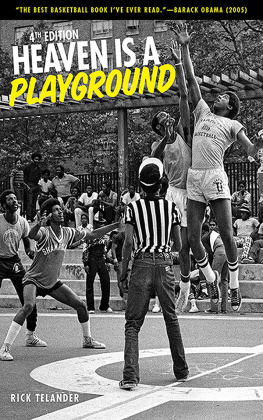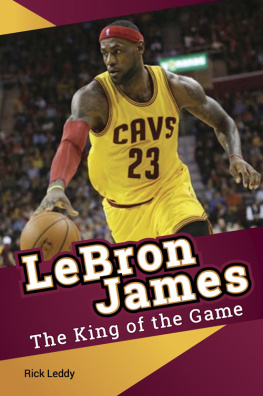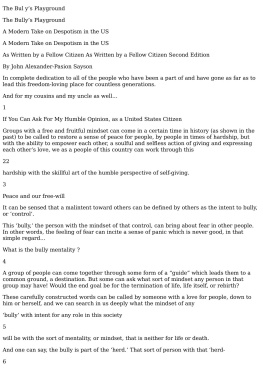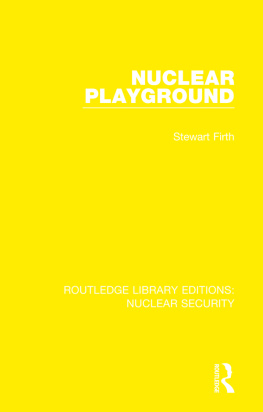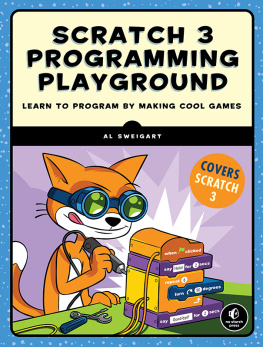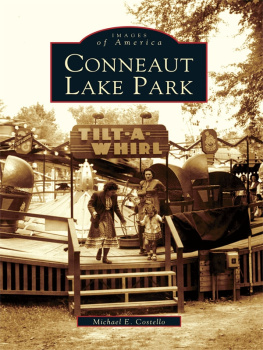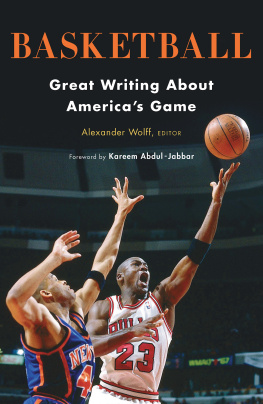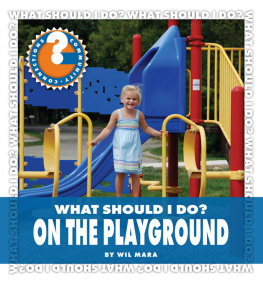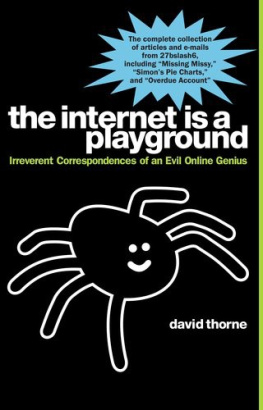FOURTH EDITION
HEAVEN
IS A
PLAYGROUND
FOURTH EDITION
HEAVEN
IS A
PLAYGROUND
Rick Telander

Copyright 1976 by Rick Telander
Afterword 2004 by Rick Tehlander
Introduction to the Bison Books edition originally appeared in Slam, November 2008.
Reprinted with permission.
First Skyhorse Publishing printing: 2013
All Rights Reserved. No part of this book may be reproduced in any manner without the express written consent of the publisher, except in the case of brief excerpts in critical reviews or articles. All inquiries should be addressed to Sports Publishing, 307 West 36th Street, 11th Floor, New York, NY 10018.
Sports Publishing books may be purchased in bulk at special discounts for sales promotion, corporate gifts, fund-raising, or educational purposes. Special editions can also be created to specifications. For details, contact the Special Sales Department, Sports Publishing, 307 West 36th Street, 11th Floor, New York, NY 10018 or sportspubbooks@skyhorsepublishing.com.
Sports Publishing is a registered trademark of Skyhorse Publishing, Inc., a Delaware corporation.
Visit our website at www.sportspubbooks.com.
10 9 8 7 6 5 4 3 2 1
Library of Congress Cataloging-in-Publication Data
Telander, Rick.
Heaven is a playground / Rick Telander.
pages cm
ISBN 978-1-61321-394-0 (alk. paper)
1. BasketballNew York (State)New York. 2. African American basketball playersNew York (State)New York-Case studies. 3. PlaygroundsNew York (State)New York. 4. Bedford-Stuyvesant (New York, N.Y.)Social life and customs. I. Title.
GV885.73.N4T44 2013
796.323097471--dc23
2013026287
Printed in the United States of America
Interior photos by Rick Telander, unless otherwise noted.
To Robert Van Sant, an inspiration
Robert Van Sant was a student pal I met my final year at Northwestern, a hard-drinking, just-returned Vietnam vet from Connecticut, just twenty-two, same age as me, who started the Del-Crustaceans with me. The band still plays. Bo was restless and had an addiction problem, but he was a funny, gentle, nice, very smart guy who loved literature and music. He died of a heart attack at age thirty-seven in 1985. I have always believed the war killed him.
It is not only possible to say a great deal in praise of play; it is really possible to say the highest things in praise of it. It might reasonably be maintained that the true object of all human life is play. Earth is a task garden; heaven is a playground.
G.K. Chesterton
CONTENTS
ACKNOWLEDGMENTS
T his book has moved through the years like a basketball down a tilted, gravel driveway (such as at my old home court in Peoria, Ill.), that is, slowly, erratically and with bounces. This fourth editiona big bouncecould not have happened without president Tony Lyons and editorial director Jay Cassell of Skyhorse Publishing. I thank you both, just as I thank editor Julie Ganz for her efforts and suggestions and tolerance of my erratic work habits. I also thank my agent Steve Mandell and past helpers Lois Wallace, Jeff Newman, Jay Acton, Rob Fleder, and David L. Williams. David was the senior editor at now-defunct M. Evans and Co. Publishing, the man who asked me in a letter dated Dec. 28, 1973 if I would be interested in expanding my recent Sports Illustrated article about city ballplayers into something larger. It seems to me there is a book in that material, he wrote. God bless you, sir.
I want to thank the wonderful family of Rodney Parker, and above all the good people of Foster Park, my friends forever.
INTRODUCTION TO THE SKYHORSE PUBLISHING FOURTH EDITION
I had both my knees replaced before Christmas 2012 due to having worn them out playing football and basketball, and I was doing rehab a few months later at the local rec center here in suburban Chicago. I wrapped up the sessionenough with the quad extensions and monster walks!and I stopped near the front door to put on my coat. There, near a pillar, was a triple-racked, wheeled cart full of paperback books that Id never paid attention to.
As I zipped my parka, I took a look at the rows of used booksbodicerippers and old thrillers, most of them. I chuckled, thinking about their past. Who had owned them? Who had thought some of themlike that one with the raven-haired babe swooning in some Fabio-looking dudes totally ripped armswere worth passing along? But the books were free. Take what you want, enjoy, bring back, toss. I was about to leave, when I noticed a different-looking book on the bottom shelf. It was a little bit larger than the others and had no gaudy illustration on it. I bent down low (something I could now do reasonably well!) and pulled it out. Brave New World by Aldous Huxley.
I had read the work, what, maybe fifty years ago? It was a crazy science fiction look at the future that seemed less crazy with each passing year. There were the savages, the alphas, the betas, the soma you could take for a glimpse of nirvana. I knew its creaky plot by heart. But I took the paperback out of curiosity. This was a newer edition than the original of 1932, and I wanted to see what Huxley had to say through the filter of time.
At home I sat down to read the new foreword. This was around the time I was pondering what to say in my own new foreword for the pending fourth edition of Heaven is a Playground. Perhaps an even more pressing question concerned how much I should change in the original book and the several introductions and postscripts I already had written for it, how much I should let the wisdom of ageor alleged wisdombe my new muse and get rid of some of the ignorance and misperceptions of youth. Thanks to technology, books no longer need be rigid. If an author decides to alter what he wrote, he can, at almost any moment, push a button and presto! somewhere in cyberspace, the change is made. This isnt to say a book is as malleable as clay. I dont think Melville, for instance, would want tonor should be allowed to, even were he not dead these last 122 yearsgo back and make the whale black and give Ahab a computerized leg. I imagine that if you do, in fact, change a published book too much in a later edition, it no longer is legally the same book as it was and must need a new ISBN or Library of Congress number or something. Its a philosophical question up to a point. Then its common sense.
Heaven was my work, and I felt, having reread it several times for this planned reissue, that there were mistakes of thought and direction within. I wanted to change a lot from almost forty years earlier. And I planned to. Then I read Huxleys introduction, and I knew I was not touching anything. Im not drawing any parallel between his legendary novel and my meek journalistic effort; I only say that he gave me the reasoning I needed to leave what I had already written as it was. Perhaps the main reason I had initially wanted to repaint some walls was because a friend I respect very much, Stanley Lumax, a gifted photographer, advertising creative director, basketball fan, Nike executive, Brooklyn resident, and man of color, had asked me rather innocuously one day what I felt about the part in my first introduction that had to do with blacks and basketball.
Which part? I asked. The part about genetics and environment?
He said yes.
I hadnt thought about that in a long while. I had taken some stats and quotes that were available in the early 1970s, some from the mouths of elite black athletes, some from Sports Illustrated research on the matter, some from scientific sources, and had used them to suggest possible reasons why African Americans then dominated the game at the highest levels. Which, in fact, they still do. I asked Stan if the factswhich, yes, might have been pseudo-science amenable to the public at the timemade him uncomfortable. He said they did, a little bit. He never brought it up again, but I thought about it a lot.
Next page
